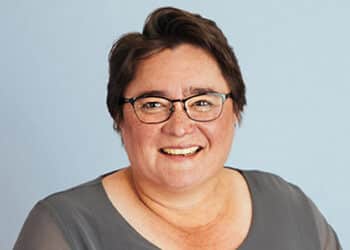ATO penalty powers
The new ATO penalty powers apply from 1 July 2014. The ATO will be able to apply:
Education directions.
Rectification directions.
Administrative penalties.
Under an education direction, the ATO may give an SMSF trustee a written direction to undertake an approved course of education where the ATO reasonably believes that the SMSF trustee has contravened the SIS Act or SIS Regulations.
Under a rectification direction, the ATO may give an SMSF trustee a written direction to undertake a specified course of action to rectify a breach of the SIS Act or SIS Regulations.
The administrative penalties apply to specific breaches listed in section 166 of the SIS Act and range between an $850 penalty and a $10,200 penalty. The penalties apply to individual SMSF trustees and corporate trustees.
If individual trustees liable for a breach by their SMSF, all individuals incur the administrative penalty individually.
Where a corporate trustee of an SMSF breaches one of the provisions that can attract an SMSF administrative penalty, the penalty applies to the corporate trustee and not on each individual director. Instead, the directors of the corporate trustee are jointly and severally liable to pay the penalty.
There are limited circumstances in which an individual director may be individually liable for a penalty where they contravene a provision. For example, where a director fails to sign the trustee declaration.
Higher contribution caps – aged base
From 1 July 2014, taxpayers that are aged 50 and over are able to make concessional contributions up to $35,000 for the 2014/2015 income year and onwards. Eligibility for the higher age-based cap is determined by testing whether the relevant taxpayer is aged 49 or over on June 30 of the preceding income year (i.e. 49 on 30 June 2014 for the 2014/2015 income year).
Higher contribution caps – indexation
The general concessional contribution cap has increased to $30,000 from 1 July 2014.
This also means that the non-concessional contribution cap has increased to $180,000 per annum (6 x the concessional contribution cap). In turn, this will increase the non-concessional contributions under the bring forward rule to $540,000.
The CGT small business cap has its lifetime limits increased to $1,355,000.
All superannuation rates and thresholds can be found here.
Super Guarantee rate increase
The Superannuation Guarantee (SG) Rate will increase to 9.5 per cent from 1 July 2014
The SG rate will then be frozen at 9.5 per cent until 30 June 2018, and on 1 July 2018 it will resume increasing by 0.5 per cent increments until it reaches 12 per cent in 2022/2023.
Superannuation Insurance
From 1 July 2014, an SMSF will only be able to provide members with insured benefits that align with a SIS Regulation condition of release. This means insurance policies acquired by an SMSF from 1 July 2014 and after must align with:
Death (item 102 of Schedule 1 to the SIS Regs 1994)
Permanent incapacity (item 103 and Reg 1.03C)
Temporary incapacity (item 109 and Reg 6.01)
Terminal medical condition (item 102A and Reg 6.01A).
Insurance policies acquired prior to 1 July 2014 will be grandfathered so that an SMSF can continue to hold existing insurance policies, even where they do not align with the new rules.
Tax (financial) advice services (TASA changes)
The new tax (financial) adviser regime starts on 1 July 2014. From that time advisers are able to register with the Tax Practitioners’ Board.
1 July 2014 is only the start date of the transition period for the tax (financial) adviser regime. The transition will occur as following:
Notification period: 1 July 2014 – 31 December 2015
-It is not compulsory to register, but you must use a disclaimer if you do not. The disclaimer must advise that you are not a registered tax (financial) adviser, and if the client intends to rely on the advice they should request advice from a registered tax (financial) adviser or a registered tax agent.
-There is no need to meet ongoing education and experience registration requirements until the initial registration expires.
-Registration during the notification period is free and the earlier you notify the longer registration lasts.
Transitional period: 1 January 2016 – 30 June 2017
-Under the transitional option, you do not need to demonstrate that you meet the standard qualification and relevant experience requirements to register.
-The TPB may impose conditions on your registration which limits the scope of tax (financial) advice services you can provide depending on your experience.
-Unregistered advisers will not be able to provide tax (financial) advice services after 31 December 2015.
1 July 2017 – a new regime will be in place and all requirements must be met to register from this date forward.
Treasury has recently released draft regulations determining that the required experience and education requirements are for financial advisers seeking to register as a tax (financial) adviser. View it here.
SPAA believes that under the proposed regulations SPAA SSAs who have six years’ relevant experience in providing tax (financial) advice services will not need to undertake a Tax Practitioner Board approved course in Australian taxation law or commercial law to register.
SuperStream
SMSFs that receive contributions from large and medium employers with at least 20 employees from 1 July 2014 must meet new data standards. There is no requirement to meet the data standards where the employer is a ‘related party’ of the fund. These standards require SMSFs to accept contributions and other information from employers electronically.
From 1 July 2014 and ending on 2 November 2014 there is an “initial transition phase” that applies. For this period, trustees of SMSFs may choose to receive SuperStream data standard-compliant messages from employers but it is not compulsory. On and after 3 November 2014, SMSFs must be able to receive contributions standard-compliant messages.
The transitional treatment during this phase is documented in the Superannuation Data and Payment Standards (Contribution Transitional Arrangements) Amendment 2014 here.
Jordan George is SPAA’s senior manager for technical and policy.


